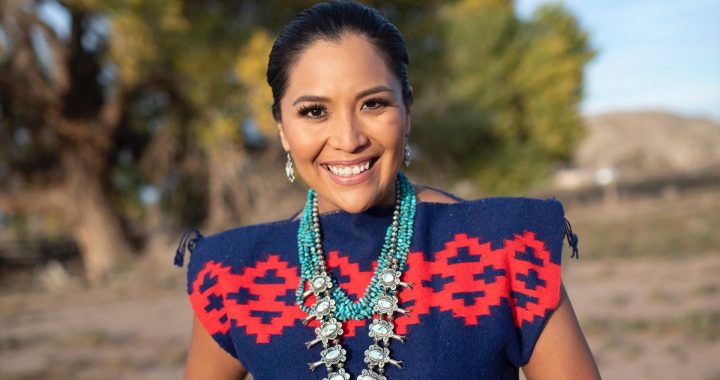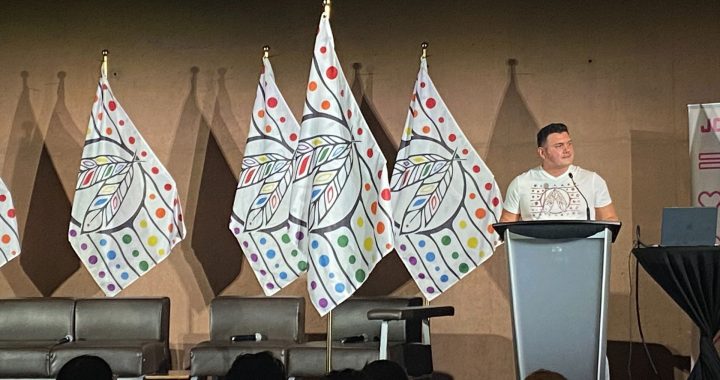
Thunder Bay police are again on the hot seat after being accused of not responding to a 911 call where a woman died. Photo: APTN News
A woman whose son and brother died of medical conditions while in Thunder Bay police custody told a coroner’s inquest Tuesday that the most painful part of her loss was knowing her child died without being taken to hospital.
Ina Kakekayash occasionally wiped her eyes with tissues as she spoke about her son, Donald Mamakwa, at an inquest exploring the circumstances of his August 2014 death and the July 2017 death of her brother, Roland McKay.
Both Indigenous men died of medical illnesses and weren’t assessed by doctors or nurses before they died.
Mamakwa’s mother and his sister told the inquest jury they were hurt by the lack of medical attention paid to their loved one, who was diabetic and had experienced homelessness for years.
“The question I’ve always had is if he was taken to the hospital, he would have received help … knowing that he died in jail was the most painful part,” Kakekayash said through an interpreter from the hearing room in Thunder Bay, Ont.
“We wouldn’t be sitting in this place today if he had been taken to the hospital first, not in the jail.”
The inquest is expected to first hear details around the circumstances of 44-year-old Mamakwa’s death, then McKay’s.
It’s also expected to hear from an expert who will speak about Indigenous people’s experiences with racism and interactions with the health system, and look at how racism and bias may have affected first responders’ interactions with the two men.
Rachel Mamakwa, Donald Mamakwa’s sister, told the inquest her family loved her brother, and he deserved respect from police.
Even if he had been taken to hospital and eventually died, his family could have been by his side, she said.
“He could have been alive today,” she said. “I’m just really sad that he had to die alone in a very dark place.”
Inquest counsel Peter Keen opened the first day of the inquest by telling the jury that they can expect to hear evidence that both Mamakwa and McKay could have survived if they had been taken to a hospital.
In Mamakwa’s case, Keen said testimony is expected that the man had a 97 per cent chance of surviving if he had been taken to hospital instead of the jail cell where he died on Aug. 3, 2014, from complications related to diabetes and sepsis.
“His illness was quite treatable,” Keen said.
Both men were arrested for suspicion of public intoxication and were being held at Thunder Bay Police Services headquarters when they lost vital signs.
Keen outlined other evidence expected in Mamakwa’s case, including that he told paramedics that he was taking medication, but they wrote down that he was not.
Evidence is also expected that McKay, 50, would have had more opportunities for survival in hospital than in the jail cell where he died, Keen said.
The inquest heard that Mamakwa, a father of six, grew up in Kasabonika Lake First Nation with four sisters and enjoyed playing guitar, baseball and hockey as a youth.
Rachel Mamakwa said she believed her brother began using alcohol to cope with his emotions after his father died and he was separated from his children when he moved to Thunder Bay.
The inquest heard that he was diagnosed with diabetes in the 1990s and did not have a family doctor. He first experienced homelessness around 2011, his mother said, but kept in regular contact with his family.
Both women said they saw him the day before he was arrested, to check in and hand off some clothes that he needed.
His sister testified about how she and another sister drove around Thunder Bay searching for Donald Mamakwa after they learned through the media that a man his age had died in police custody.
She eventually confirmed her brother had died after the sisters went to police headquarters and asked if he was the person who died in custody.
“I really hope that this never happens again, or if it does happen again make sure you notify the family before the media, because it hurts. It hurts just to find out ourselves,” she said.
Kakekayash said she learned about her son’s death when her daughters called her.
“Many times I heard myself question, how am I going to get through this,” she said.
The inquests are being held together because of similarities in the cases, Keen said. Both men had been consuming alcohol, both interacted with EMS and police, both died in Thunder Bay police custody and had opportunities for survival that were not met, the inquest heard.
Both were Indigenous and had a family connection, Keen added. He stressed to the jury the importance of setting aside bias and having an open mind when hearing the evidence.
“Truth and reconciliation are fitting words for an inquest of this nature,” said Keen.
Legal counsel for the Thunder Bay chief of police and several of the force’s officers put forward a motion in January 2021 arguing certain cell block videos should be excluded from evidence. The footage depicts police bringing another Indigenous man into custody for public intoxication on the same night Mamakwa was arrested and later found dead.
Keen said that footage will be viewed to show how Indigenous people who appeared to be intoxicated were treated in Thunder Bay that night.









